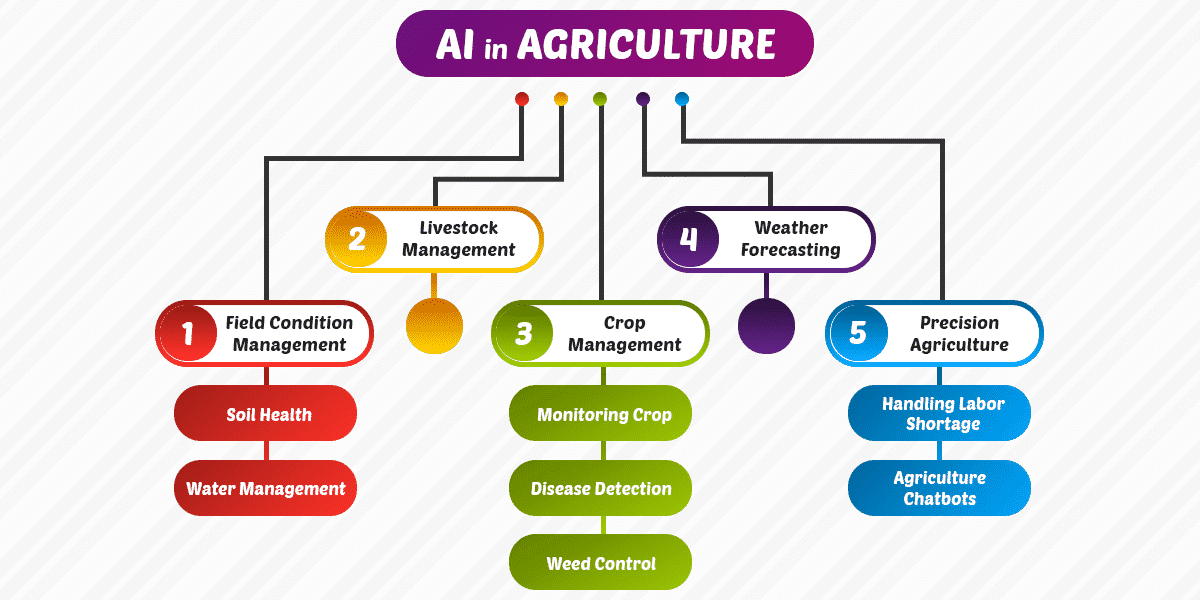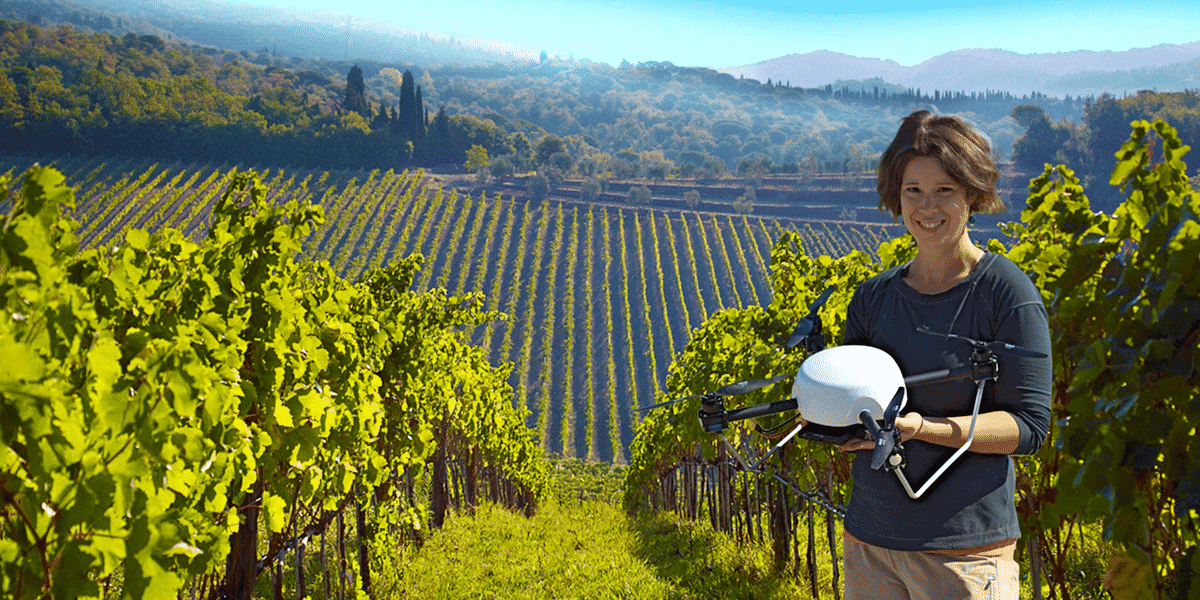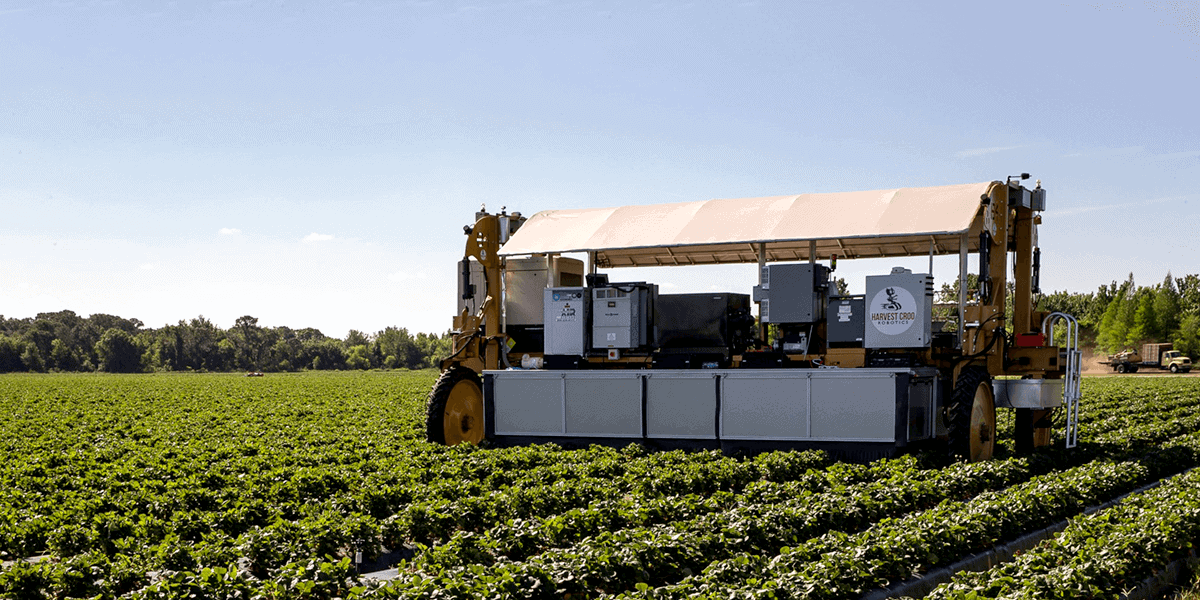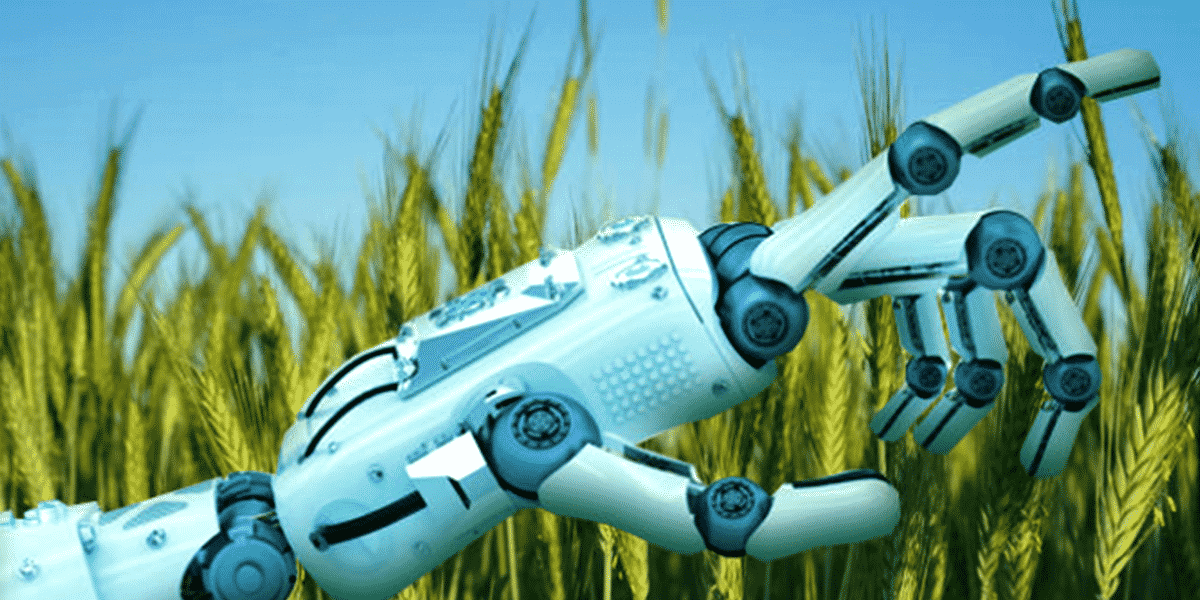Agriculture and farming is a $5 trillion industry that is continuously expanding. Researchers estimated if current trends persist, the world’s food production needs to increase by 70% by 2050 to feed the growing population of the earth. Meeting this requirement would be challenging, as more than 20% of fertile lands are degraded.
The biggest question that lies in front of the agronomist is how to get to this increased food production in a responsible way? The most promising approach to solve this is that data-driven agriculture. Artificial intelligence technology is being used to unravel the world’s food and agriculture problems. With the application of AI in agriculture, it is possible to collect a large amount of data from the farms and draw efficient data-backed decisions.
Advantages of using AI in agriculture
- Increase efficiency without harming the environment
- Strengthen the farming and agriculture business by producing good quality and nutritious products
- Pest and disease control
- Improve crop management practices
- Resolve challenges faced by farmers, such as climate variation, limited resources, or infestation.
Use Cases: How AI can be used in agriculture

1-AI for Field Condition Management: Farmers are using computer vision and deep-learning algorithms to scan fields and create a field map for in-depth analysis. Microsoft’s FarmBeats project is working with farmers to increase productivity and reduce costs.
- Soil health– AI is efficiently used to monitor soil health and provide information such as moisture level, PH level, or nutritional deficiencies in the soil. Trace Genomics, a California-based company, is harnessing machine learning to provide complete soil analysis to growers.
- Water management– Agronomists are using AI-based applications to make effective use of irrigation systems and predict dew point temperature.
2-AI for Crop Management: AI technologies assist growers to generate abundant yields by determining crop choices, seed choices, and resource utilization.
- Monitoring crop– Farmers are leveraging AI and drone-based solutions to monitor and assess the health of crops. SkySquirrel Technologies Inc. is a company using AI algorithms to provide a detailed health analysis report of vineyards.

Photo Credit: CISION
- Disease detection– FarmShots, a startup based in Raleigh aims to diagnose diseases, pests, and plant nutrition levels on farms. Its software can inform growers where fertilizers are needed and in what quantity.
- Weed control– AI models detect and discriminate harmful weed growth in the crop fields and guide farmers in taking proper action against it.
3-AI for Livestock Management: Artificial intelligence helps farmers to monitor the health of farm animals and enable early detection of diseases and injuries. Farmers are using robotic milking machines and AI-based sensing systems are used to assess milk quality of cows.
Cainthus is a technology company that designed the cow facial recognition system to monitor cattle behavior. It helps in reducing stress levels on the cows and increasing production.
4-AI for precision agriculture: Concept of precision agriculture is emerging and is making productive use of artificial intelligence to reinforce agribusiness. Precision farming takes advantage of key AI-powered technologies to obtain guidance about crop rotation, nutrient management, right sowing and harvesting time, and so on.
- Handling labor shortage– Most farms are dealing with the problem of workforce shortage as fewer people are interested in the farming profession. AI-powered machines are now assisting farmers to solve this issue. To give a clear example, Harvest CROO Robotics has created a robot to aid strawberry farmers harvest their yields. It has increased the proficiency of the growers.

Photo Credit: Harvest CROO Robotics
- Agriculture Chatbots– Farmers are using chat for getting advice and recommendations to solve farming problems.
5- AI for weather forecasting: AI-based models are used by farmers to predict weather patterns and improve agricultural accuracy. A Colorado-based company, aWhere, is using artificial intelligence models and satellite feeds to forecast weather and analyze crop sustainability.
AI-based machines are observing all agricultural activities in real-time, thinking about what to do next based on the data collected, and executing appropriate actions. AI has the potential to revolutionize the future of agriculture.

